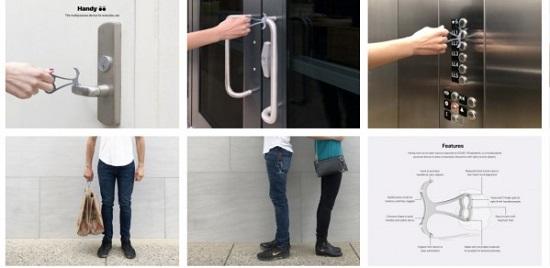Since the start of his PhD in Industrial Design, with a focus on User Experience (UX) and Internet of Things (IoT), he is developing foundational research to understand the challenges, as well the gaps that prevent people, with a variety of capabilities, to be fully recognised and included in society. His research looks at how inclusive design can foster the use of IoT technologies to shape accessible, engaging, and inclusive products and environments.
With a research grant, funded from the European Union’s Horizon 2020 research and innovation programme under the Marie Skłodowska-Curie grant, he is working closely with the International WELL Building Institute to target Inclusion, Diversity, Equity, and Accessibility (IDEA) as standards to guarantee environments suitable for all the population. The goal of the project is to understand and map challenges of the design process and points of exclusion in the user journey.
Two of his projects have recently won awards.
The first project ‘Handy’ a multipurpose personal device to allow contactless interaction with daily routine objects, has received the Silver Award from the 14th International Design Awards competition 2020, in the category Design for Society and for Social Impact.
Handy is an open-source response to the COVID-19 pandemic. Its minimal, user-friendly, sustainable design serves as a body extension for right/left-handed individuals, people of all ages and with different abilities. Handy (see image above) is a design example of form, fit and function; it can be used as a portable keychain to open or close doors, press buttons, interact with objects, carry shopping bags and much more.
The second project is TAILT which won the Silver from the 14th International Design Awards competition 2020 in the category Outdoor And Exercise Equipment / Bicycle and bicycle accessories. TAILT is a result of a team effort under the Irish startup Déan Design Lab with Paul Leamy, Kevin Tighe, Paul Banhanan, Damon Berry, Andrew Marsh and collaboration with Orwell Wheelers Dublin, Enterprise Ireland, TU Dublin Hothouse and Sparrowatch.
TAILT is a smart bicycle fender with integrated hi-visibility tail light, brake light function and turning indicator signals that provides safety, comfort and improved visibility from all directions. TAILT senses when you slow down or when you want to turn and safely shows up your actions to other road users making cycling safer.
Talking about his research Matteo says; “I strongly believe that we should aim for a world where products and environments are developed by people, for people, through the support of more-than-human systems. Trust, privacy, sustainability and social inclusion are pillars of this pan-disciplinary research path that spans across arts and humanities, STEM, health and well-being, ethics and education.
“Handy has been recognised due to one of the most dramatic events that happened in our contemporary history. However, most of the people who work for the safety, security, health, and prosperity of humanity don’t receive awards for their work. So, it is with profound gratitude that I would like to dedicate this award to all of the people out there fighting for a better society.”
Reproduced courtesy of University of Cambridge, Department of Engineering
